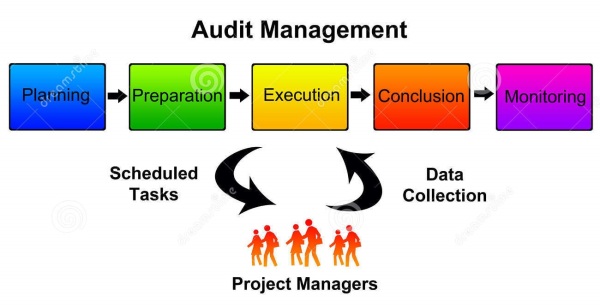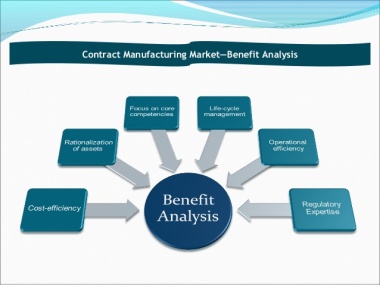The Cutting Edge of Medical Technology Content, Community & Collaboration
Auditing is a very important aspect of quality in all the areas of the medical sciences. An audit is the most reliable and foolproof method for evaluating the extent to which the various activities in an organization comply with the requirements and expectations the principal has from those to whom various processes are outsourced. Audits are the main tools for a quality unit to monitor and ensure that those activities are performed in compliance with the manufacturer commitments for quality and regulations.

An audit is also essential to ensure that the organization meets guidelines set out by the regulatory authorities. Its uses are more pronounced in areas such as medical devices, clinical research, pharmaceuticals, and other areas of the life sciences which require adherence to very accurate and rigorous standards of processes, procedures, quality and policies.
Further, audits are also conducted to assess the quality of material supplied by vendors, who could be from fields as varied as accounting to software to claims settlements to medical products. In this era of outsourcing, it is but natural to expect players in the healthcare industry to outsource several of their activities for a number of reasons.
An audit is extremely crucial in all these activities in the life sciences industry, because it helps to control quality and save costs and many troubles that could come up if the processes are not adhered to. Outsourcing only saves the manufacturer or the provider the trouble of having to do many activities by himself; it does not absolve him of the legal responsibility. The law is very clear on this: Whenever there is noncompliance with the regulatory guidelines; it is the principal, or the provider, on whose shoulders the blame squarely lies.
An audit is effective, but only if done rightly
It is for this critical reason for which audits have to be performed, both internally and externally. But then, an audit can fail too, if it is not done properly. In the field of medical sciences, there are well-established good practices and best practices in many areas, such as Good Manufacturing Practices, Good Laboratory Practices, and so on, but there is no such convention as a Good Auditing Practice. This makes the voluntary inculcation of best practices an imperative for professionals in the areas of medical auditing.

This is of extreme importance considering that most areas of the medical sciences deal with human lives. A high value is attached to audit practices, as an error from any of them, such as Contract Manufacturing Organizations (CMO’s), subcontractors, and suppliers of many items can have very bad consequences.
A learning session on auditing of CMO’s
The concept of Good Auditing Practices may not have evolved yet, but guidelines, techniques, and practices are in place to ensure that the audit meets its requirements and fulfils its objectives relating to quality.
Want to explore the matters that go into making medical audits successful and how to audit CMO’s to ensure that the products and processes required in a number of areas of the life sciences comply with the regulatory guidelines? Then, a webinar from Compliance4All, a leading provider of professional trainings for all the areas of regulatory compliance, will help you do this.
This webinar will have Eyal Learner, who is owner of ELC Consulting Services, which offers the pharmaceutical and medical devices industries support in all quality related issues, as the speaker. To gain insights into how to carry out audits and ensure an effective means of evaluating compliance with the objectives of the Quality System, especially when it concerns suppliers and outsourcing operations like CMO’s, service providers, sub-contractors and raw materials suppliers; please register for this webinar by logging on to 3rd Party and Subcontractors
Helping auditing serve its purpose
At this webinar, Eyal will explain the vital purposes of auditing and the ways of ensuring compliance with the quality and regulatory standards set out by the regulatory agencies using the right auditing techniques. He will show practical aspects of auditing. Although auditing is based on set principles and is a well-planned activity; auditors have to contend with changes that keep coming up abruptly, unannounced.
Auditors need to be prepared for handling such situations, which is what Eyal will help understand. He will explain the audit techniques and skills needed in situations like this and show ways by which to make the audit to be successful and efficient. This course is particularly aimed at auditors, potential auditors and auditees working for the pharmaceuticals, medical devices, and API and Excipients industries.
Eyal will cover the following areas at this webinar:
- Short regulatory overview on external audits
- GMP Requirements
- Types of Audits
- Rights & Duties
- Planning
- Off-site Assessment
- Prefaces to Audit Techniques
- General Techniques
- Specific Techniques
- FDA’s Quality System Inspection Technique (QSIT)
CAPA and Follow-up.
Views: 19
Comment
© 2025 Created by CC-Conrad Clyburn-MedForeSight.
Powered by
![]()
You need to be a member of MedTech I.Q. to add comments!
Join MedTech I.Q.